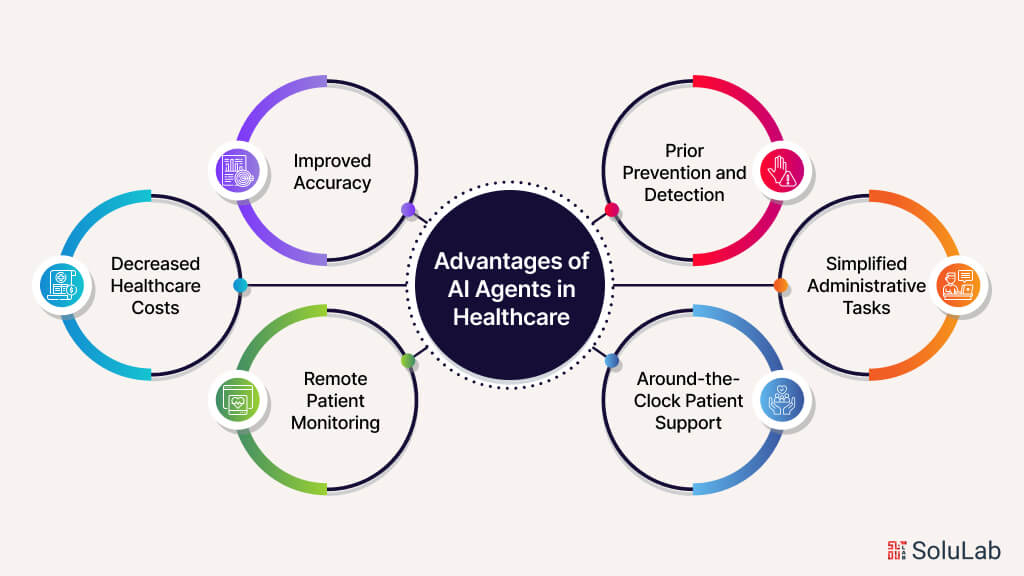Understanding Plan G, Plan N, and More With a Trusted Florida Medicare Agent
Exactly How Insurance Coverage Functions for Elders: Secret Insights Into Medicare and Insurance Coverage Options
Comprehending insurance coverage for senior citizens, especially Medicare, is essential for effective medical care management. Medicare supplies crucial coverage, however its complexities can be frustrating. Seniors must browse numerous elements, such as Parts A, B, and D, in addition to choices like Medicare Benefit and Medigap plans. Each selection impacts their monetary duties and access to solutions. Unpacking these components reveals substantial insights that can affect their medical care choices. What are the vital elements senior citizens should take into consideration?
Recognizing Medicare: An Overview

Medicare Components A and B: What They Cover
Medicare Parts A and B supply important coverage for elders, resolving both hospital and clinical solutions. Component A focuses on medical facility insurance, covering inpatient stays and specific outpatient services. Component B uses insurance coverage for a range of medical services, including medical professional visits and preventive care.
Hospital Insurance Policy Protection
Exactly how do elders navigate the intricacies of healthcare facility insurance protection? Medicare Component A gives important medical facility insurance, covering inpatient keeps, competent nursing center care, hospice solutions, and some home healthcare. This coverage is crucial for senior citizens, as it assists handle the costs connected with hospital stays and recovery.Medicare Component B, on the other hand, complements Component A by covering outpatient solutions, including medical professional brows through, preventive treatment, and diagnostic examinations. Together, these two parts create a comprehensive security web for elders, guaranteeing they have accessibility to necessary clinical care. Recognizing the distinctions between Components A and B permits senior citizens to make informed decisions regarding their healthcare requirements and monetary responsibilities associated with healthcare facility services.
Medical Provider Coverage
While passing through the complexities of clinical services protection, seniors profit from recognizing the certain offerings of Medicare Components A and B. Medicare Part A primarily covers inpatient hospital remains, experienced nursing center treatment, hospice treatment, and some home healthcare services. On the other hand, Medicare Part B concentrates on outpatient services, including medical professional sees, preventive care, diagnostic examinations, and sturdy clinical tools. Additionally, Component B covers particular mental health and wellness solutions and outpatient rehab. Together, these components give a detailed structure for handling healthcare demands. Senior citizens need to acquaint themselves with the nuances of these coverage choices to assure they optimize their benefits and lessen out-of-pocket costs, eventually boosting their accessibility to essential medical services.
Medicare Advantage Strategies: A Different Strategy
An expanding number of elders are checking out Medicare Benefit Plans as a feasible option to typical Medicare. These strategies, also referred to as Medicare Part C, are supplied by private insurance policy business and include all advantages of Medicare Components A and B, usually including additional services such as vision, oral, and health care. Lots of senior citizens appreciate the streamlined approach, as these plans commonly use a solitary plan that covers different medical care needs.Medicare Benefit Strategies can provide an economical option, with some strategies also including reduced or no monthly premiums. However, it is necessary for seniors to evaluate the network of doctors and medical facilities related to each strategy, as well as any kind of added out-of-pocket costs that may emerge. Inevitably, selecting a Medicare Benefit Plan requires cautious consideration of specific wellness demands and monetary situations, making sure senior citizens choose the option that ideal suits their way of living and health care demands.
Prescription Medicine Coverage: Medicare Part D
Medicare Part D offers vital prescription medication insurance coverage for seniors, helping to take care of the expenses of needed medicines. Understanding the enrollment duration is crucial for recipients to optimize their benefits and prevent penalties. In addition, cost factors to consider play a significant function in picking the appropriate plan to fit individual health needs and monetary situations.
Insurance Coverage Basics Explained
Prescription medication coverage is a necessary component of medical care for seniors, guaranteeing access to required drugs. Medicare Component D provides a variety of strategies developed to help cover prescription drug costs. These plans are supplied by private insurance coverage companies authorized by Medicare and can differ widely relative to costs, deductibles, and covered drugs. Beneficiaries typically pay a month-to-month premium, together with copayments or coinsurance for every prescription. It is very important for elders to review their choices every year, as formularies and prices might alter. Some people might likewise qualify for Extra Assistance, a program that assists with out-of-pocket costs. Inevitably, recognizing these fundamentals allows senior citizens to make informed choices regarding their prescription medicine insurance coverage.
Registration Duration Information
Understanding the numerous registration durations for Medicare Component D is crucial for elders seeking to secure their prescription drug insurance coverage. The Initial Enrollment Period (IEP) lasts 7 months, beginning three months before an individual turns 65 and finishing 3 months after. During this moment, senior citizens can enlist in a Component D plan scot-free. The Yearly Registration Duration (AEP) runs from October 15 to December 7 each year, permitting recipients have a peek here to make changes to their existing strategies or sign up in a new one. Furthermore, seniors might qualify for an Unique Enrollment Duration (SEP) due to particular circumstances, such as relocating or shedding other insurance coverage. Recognition of these timeframes is essential for guaranteeing sufficient prescription drug protection.
Price Considerations Overview
While steering with the complexities of medical care prices, senior citizens need to take into consideration the economic aspects of Medicare Component D, which offers necessary prescription drug insurance coverage. This program includes various costs, consisting of month-to-month costs, yearly deductibles, and copayments for medications. Costs can vary significantly based on the selected plan and income level. In addition, recipients might run into a protection gap, usually described as the "donut hole," where out-of-pocket costs raise until getting to a specific investing limit. Comprehending these price frameworks is vital for elders to successfully manage their health care budgets. Moreover, it is a good idea for elders to examine their prescription needs yearly, as medications and strategy options might transform, affecting general expenses and insurance coverage competence.
Medigap Policies: Supplementing Your Medicare Coverage

Medicaid: Additional Support for Low-Income Seniors
For elders dealing with monetary obstacles, Medicaid acts as a vital safety and security web, providing vital healthcare insurance coverage and support. This program, carried out collectively by federal and state federal governments, specifically targets low-income individuals, consisting of the elderly. Medicaid covers a wide variety of services, such as hospital remains, doctor sees, long-lasting care, and home health solutions, which are essential for preserving health and health. Qualification for Medicaid differs by state, typically based on revenue, possessions, and specific medical demands. Many senior citizens may receive both Medicare and Medicaid, understood as dual qualification, which can aid cover prices that Medicare does not, such as copayments and deductibles. Furthermore, Medicaid might supply assistance with prescription medication costs via programs developed for low-income beneficiaries. Overall, Medicaid plays a substantial role in making certain that low-income seniors have access to essential healthcare services, advertising much better wellness outcomes and high quality of life.
Browsing the Registration Refine: Trick Timelines and Tips
Just how can seniors efficiently navigate the complex registration procedure for medical care insurance policy? Comprehending vital timelines is essential. The first enrollment period for Medicare begins three months before the individual turns 65, extends via the month of their birthday, and proceeds for three months after. During this period, senior citizens can enroll in Medicare Part A and Part B without penalties.Additionally, the annual open registration period for Medicare Advantage and Component D runs from October 15 to December 7 each year, permitting modifications in protection. Seniors are suggested to examine their present health needs and testimonial you can find out more strategy choices during this time.To facilitate a smooth enrollment experience, utilizing sources such as the Medicare site or getting in touch with state medical insurance assistance programs can offer beneficial assistance. Tracking due dates and essential documents will certainly further guarantee that elders secure the most ideal insurance coverage for their medical care needs.
Regularly Asked Inquiries

Can I Maintain My Present Doctor With Medicare Protection?
The question of maintaining a present medical professional under Medicare protection typically depends on the certain strategy chosen. Lots of Medicare Advantage plans might call for using a network of providers, while Initial Medicare normally allows wider access to medical professionals.
What Occurs if I Miss the Registration Duration?
They may deal with postponed protection, greater premiums, or prospective fines if a specific misses the enrollment period. This circumstance can result in spaces in medical care access, prompting the requirement for cautious preparation and understanding of target dates
Are Oral and Vision Providers Covered by Medicare?
Oral and vision solutions are typically not covered by Medicare. Nevertheless, some Medicare Advantage plans may provide these benefits. Elders need to discover their options to figure out if additional coverage is available for these crucial services.
Just how Do I File a Grievance About My Medicare Strategy?
To submit an issue about a Medicare plan, one should contact Medicare directly at 1-800-MEDICARE or see their website. Reporting concerns assists improve services and guarantees that problems are addressed promptly.
Can I Change My Medicare Strategy After Enrollment?
Transforming a Medicare plan after registration is feasible throughout designated durations, such as the Yearly Registration Period or Special Enrollment Durations (Senior Insurance Agent). Individuals need to evaluate their options very carefully to ensure they select the ideal coverage for their needs
Verdict
In summary, understanding the ins and outs of Medicare and its different elements is important for senior citizens seeking to optimize their health care protection. By discovering Medicare Parts A and B, Advantage Program, Part D for prescriptions, and Medigap plans, seniors can make enlightened decisions that decrease out-of-pocket expenses. Furthermore, recognition of Medicaid choices offers more support for low-income people. Guiding the enrollment process with crucial timelines guarantees that elders can access the necessary solutions they need for their well-being. The program is divided into Original Medicare and Medicare Advantage, each offering distinct benefits and insurance coverage alternatives. While passing through the intricacies of clinical solutions coverage, seniors benefit from understanding the certain offerings of Medicare Components A and B. Medicare Component A mostly covers inpatient healthcare facility keeps, competent nursing center treatment, hospice treatment, and some home health and wellness care solutions. A growing number of elders are checking out Medicare Advantage Plans as a practical option to typical Medicare. Numerous seniors might qualify for both Medicare and Medicaid, understood as dual eligibility, which can help cover expenses that Medicare does not, such as deductibles and copayments. During this duration, elders can enlist in Medicare Part A and Part B without penalties.Additionally, the annual open registration duration for Medicare Benefit and Component D runs from October 15 to December 7 read this article each year, permitting adjustments in coverage.